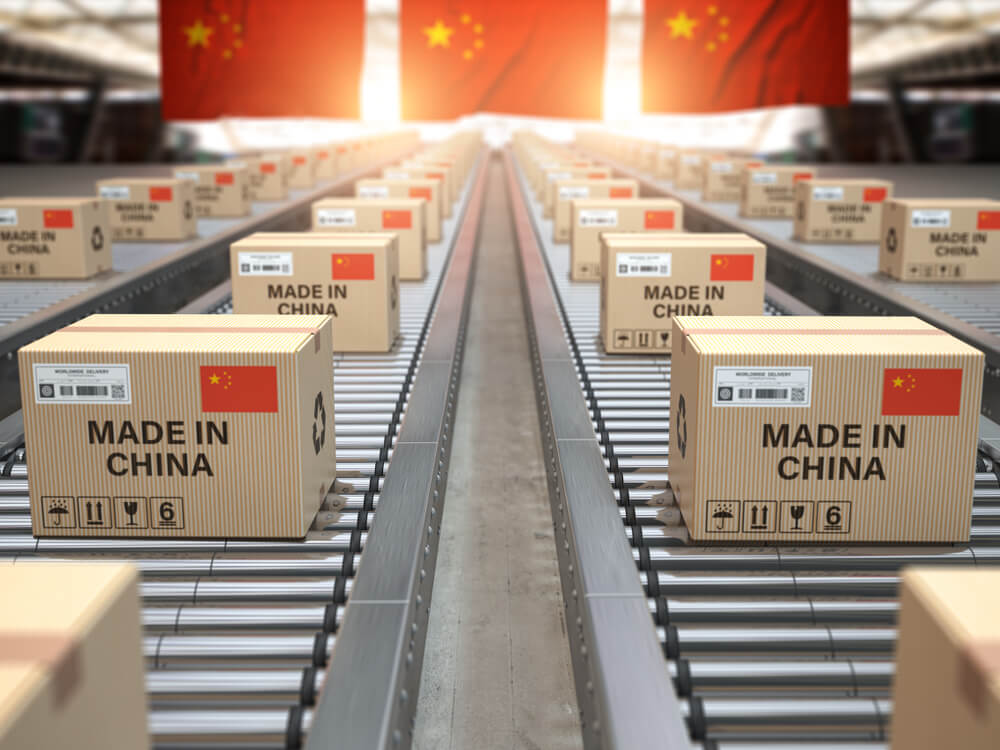Should Expenses be Paid Through Payroll?
Discover if expenses should be paid through payroll, with pros, cons and directions from HRMC.

If your UK business buys goods and supplies from China, you’re going to need a reliable, convenient and low-cost way to pay their invoices.
One potential option is to pay Chinese suppliers via a credit card, but is it widely accepted as a payment method? And what does it cost for both you and the supplier?
In this guide, we’ll cover everything you need to know on how to pay suppliers in China with a credit card.
You can use your UK credit card for purchases from China, but it really does depend on the supplier. Debit and credit cards aren’t widely accepted by suppliers based in China, although it depends on the company and what you’re buying.
If you do find a Chinese supplier who will accept credit card payments, here’s what you need to know:¹
Credit and debit card payments can come with high charges and processing fees, especially for the supplier. This is why many companies aren’t keen to accept them. In some cases, the costs may be passed onto you – this could make your purchase more expensive.
Many Chinese companies consider credit cards to be risky, because fraudulent buyers can cause unacceptably high losses. This is just one of the reasons they’ve become unpopular in China.
If you do want to pay by credit card, be very careful who you hand your card details to. Ideally, you should only enter your details through a secure ecommerce or credit card processing platform.
There are many other cheaper and more secure ways to pay Chinese suppliers from your base here in the UK, other than using a credit card. Here are just a few examples.
Wise Business offers different payment methods that are designed for making international payments. The biggest advantage of using Wise to pay Chinese suppliers is the cost especially if you have to convert from your currency to Chinese Yuan or USD. You can also make batch payments to make multiple payments to different suppliers all in one go. You can also pay with a debit or credit card when making payments through the Wise account.
With Wise Business you can send money to a company account, let's say to pay Chinese suppliers, and even send CNY payments with Alipay to a personal account, to pay contractors, freelancers or employees based in China. Whether you’re making regular salary payments to your employees or one-off service payments to contractors, you can use Alipay to send up to 50,000 CNY per transfer.
Get started with Wise Business 🚀
This payment method involves setting up an electronic transfer, usually from your UK bank account. It’s a widely accepted payment method among Chinese companies.
There are pros and cons of international wire/bank transfers. It is a secure payment method and is reasonably quick, but you will also have to pay currency conversion fees and international transfer fees from your bank. You’re also likely to get a poor exchange rate when using a bank for international transfers, which makes your payment more expensive overall.
This is where you pay for your goods as soon as you order them, before they are dispatched. But the money is held in ‘escrow’ by a middleman until the goods arrive in the agreed condition. Only once a certain number of pre-agreed conditions met will the funds be released to the supplier. The aim is to help prevent scams and to make sure goods are actually shipped.
Escrow is a popular choice of payment method for international transactions, but you and your supplier will need to both agree fair conditions for the release of funds. There are also fees involved for the use of an escrow service.
Letters of Credit (LCs) are provided by your UK bank and issued to your supplier in China. It’s essentially an IOU or a guarantee, where the bank pledges to pay the funds if for some reason you’re unable to.
Chinese suppliers are often happy to accept LCs as they provide a safety net for international payments. If you can’t pay, the supplier won’t be left out of pocket.
But from your side of things, LCs aren’t the cheapest or most convenient option. You’ll need to meet strict terms, deal with lots of paperwork and pay some fees. It can also take a while to get a Letter of Credit sorted, which could cause delays in getting your goods shipped over to the UK.
While PayPal is widely used for business and personal payments in the UK, not all Chinese suppliers accept it. However, a growing number are starting to embrace the platform for international buyer payments.
PayPal is secure, quick and convenient, but it does come at a cost. There are plenty of fees applicable to international transfers, which can soon stack up. If you plan to make regular purchases from overseas, you could find PayPal too expensive.
So, are credit cards the best way to pay Chinese suppliers? In most circumstances, not really.
Credit cards aren’t a popular payment method among suppliers in China, so you may struggle to find one that will accept them. Plus, the processing fees can be high on both sides. There’s also the risk of fraud, so remember to be very careful (and ideally only go through a secure ecommerce portal) when handing over your credit card details.
Luckily though, there are plenty of other options available, including using Wise to save both time and money on international payments.
Sources used:
Sources checked on 10-March 2021.
*Please see terms of use and product availability for your region or visit Wise fees and pricing for the most up to date pricing and fee information.
This publication is provided for general information purposes and does not constitute legal, tax or other professional advice from Wise Payments Limited or its subsidiaries and its affiliates, and it is not intended as a substitute for obtaining advice from a financial advisor or any other professional.
We make no representations, warranties or guarantees, whether expressed or implied, that the content in the publication is accurate, complete or up to date.

Discover if expenses should be paid through payroll, with pros, cons and directions from HRMC.

Discover the best practices when setting up per diem expenses, how to set up rate, proceed with payment and more.

We’re excited to announce that Morgan Stanley, a leading global financial services firm, has teamed up with Wise Platform, Wise’s global payments...

Discover how to automate expense reporting with our complete guide that covers step-by-step process, tools and best practices.

Travel and expense (T&E) processes are necessary in any business in which employees may spend on allowable business expenses, which need to be recorded,...

Discover the 6 best reconciliation tools available for businesses in the UK.